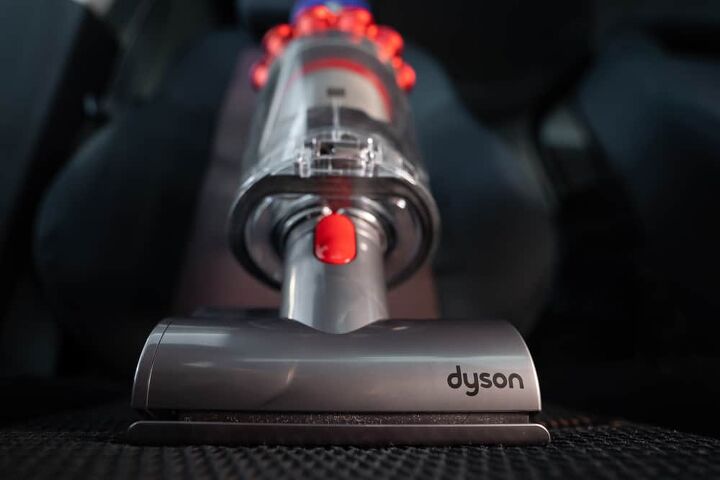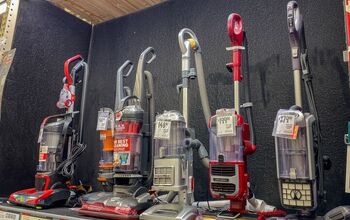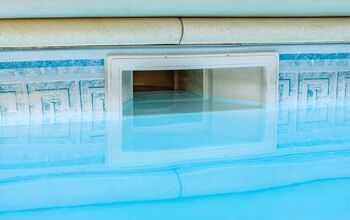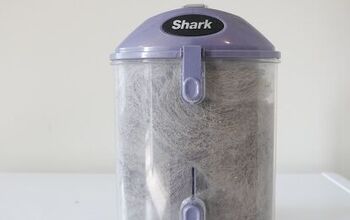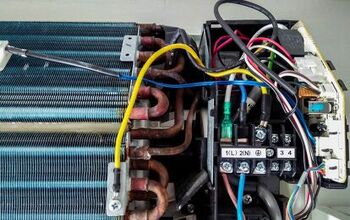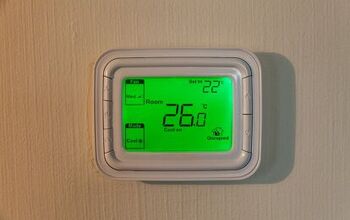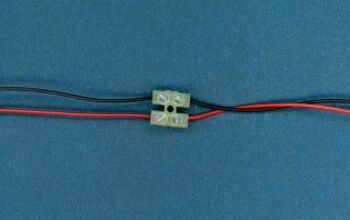Dyson Vacuum Lost Suction? (Possible Causes & Fixes)

When it comes to vacuum brands that are known for powerful suction, Dyson is often at the top of the list. Dyson’s reputation for being strong at suction is at an all-time high. Unfortunately, things can happen that can reduce the suction of even the most powerful Dyson vacuum. If this happened to you, then you are probably wondering what’s going on with your Dyson. We got the scoop…
There are several reasons why a Dyson vacuum could lose its suction. The most common reasons include:
- Clogged Brush Bars
- Clogs In The Suction Hose
- Filthy Filters
- Congestion In The Cleaner Head
- Motor Difficulties
For the most part, any vacuum that’s losing suction has one of two general causes: a clog, or standard wear and tear. Worried about restoring your vacuum, and if it’s even worth it? Our guide is all about helping you make the most of it.
Do You Need a Vacuum Repair or Service?
Get free, zero-commitment quotes from pro contractors near you.

Why Did Your Dyson Vacuum Cleaner Lose Suction?
A vacuum cleaner can lose suction for a wide variety of reasons. In order to fix the problem, you should make a point of troubleshooting each problem individually. Let’s take a look at the worst issues that can impact a vacuum below.
Clogged Brush Bars
The brush bar is the long, twisty bar that is at the bottom of your vacuum. This brush is meant to massage your carpet to loosen up the grit in your carpet and help push it towards the suction. When there is a clog in the brush bar, getting the airflow right will be next to impossible. Thankfully, the fix is simple.
To unclog the brush bar, gently remove the brush bar from the bottom of the vacuum per your instruction guide. Then, manually rip out all the hair and debris that’s caught in the brush bristles. Once it’s thoroughly cleaned, place the brush bar back into the vacuum. In many ways, it’s the same procedure as a Shark brush bar repair.
Clogs In The Suction Hose
Does your vacuum spew out debris or smell funky? If so, you probably have a clog in your suction hose that carries all the debris to the canister. Depending on what causes it, it could be a health issue since a foul smell is indicative of mold growth. Fixing this issue is easy:
- Detach the suction hose from the vacuum.
- Run some hot water through the suction hose, holding the bottom of the hose. Shake the hose to help loosen debris, then let the hose’s contents spill out.
- Holding the bottom end of the hose shut again, pour some vinegar and baking soda down the hose. Shake. Release the contents of the hose down the drain.
- If you suspect the clog is still there, repeat step three.
- Rinse with warm water, then rinse again with cold.
- Lay the suction hose flat to dry, then reattach it.
Filthy Filters
In a lot of ways, a vacuum cleaner is a lot like a furnace. Without a well-maintained, clean filter, a furnace will overheat. A similar thing happens with vacuums. The filter in your Shark vacuum is there to ensure that large items don’t damage the suction or harm the inner workings of the vacuum.
In order for your vacuum to stay functional, you need to make sure that your filter is clean. So, check out your owner’s manual and find out how to remove the filter. Clean it with dish soap and water, making sure to remove any debris large enough for you to pull out with your fingers.
Once your filter is clean, put it back in your vacuum and give it a try. You should be able to notice a certain level of improvement by now.
Congestion In The Cleaner Head
Does your vacuum still have a little lag in its suction, but you can’t figure out what it is? In most cases, it’s the cleaner head. This can have blockages too, but it’s often the most difficult part to access. To do this, you will need to follow these steps below:
- Start by laying the vacuum flat. Make sure that you have ample access to the cleaner head.
- Take off the cleaner head by opening the C-clip surrounding it. Turn the head until you hear a click, and remove the head.
- Lift up the top of the base plate, turn it gently, and pull it out using a lifting motion. (Your owner’s manual can go into deeper detail, if this sounds confusing.)
- Use your hand to manually remove any debris that was in this area.
- Put the face plate back, replace the cleaner head, and place the C-clip on to lock it in.
A Bad Motor
Finally, let’s just hope that you do not need to get to this stage to see some suction return to your machine. If you went all the way through all the painstaking steps to get your vacuum fixed with little success, then that means clogs aren’t the reason why your vacuum is failing. Rather, it’s a sign that your vacuum’s motor is going bad.
Though many bad motors are caused by excess clogging or poor maintenance, the truth is that this is usually a sign of long-term wear and tear. In other words, you have a choice: you can replace your motor or replace your vacuum. If you have one of Dyson’s top models with a long warranty, you might be able to get it fixed. However, replacement is usually the best option.
How Long Should A Dyson Vacuum Last?
Currently, Dyson is considered to be one of the longest-lasting vacuum brands on the market. This is mostly thanks to their dedication to heavy-duty engineering, with many of their domestic products being capable of industrial uses. A typical Dyson vacuum can last anywhere from seven to a whopping 10 years, making it one of the most reliable vacuum brands on the planet.
To make matters even better, many of the top tier models offered by the company come with exceptionally long limited warranties. Many have warranties that last as long as five years—a timeframe that is actually longer than a typical vacuum cleaner’s lifespan.
Should You Hire An Appliance Repairman To Fix Your Dyson?
This all depends on the issue at hand. Cleaning out your filters or doing a quick rinse of your suction hose is not something that you should pay a handyman or an appliance repairman to do. It’s easy as pie to do, and it would be a clear waste of money for the vast majority of people out there.
However, like with all other projects surrounding the home, there are going to be times where you may want to call a professional. If your vacuum is still under warranty, then you might as well call Dyson’s phone number to see what parts and labor is covered under your plan. You might be able to get it repaired for a discount.
The only time you might want to consider a repairman is if you (for some reason) would rather replace the vacuum motor than replace the entire vacuum itself. In most situations, this will not make financial sense and may actually be foolish. It’s often the same price to buy a new unit as it is to get a motor replacement!
Do You Need a Vacuum Repair or Service?
Get free, zero-commitment quotes from pro contractors near you.

Related Questions
Why are vacuums from Dyson so expensive?
Part of the reason they are so expensive is their brand reputation, the other reason is because they are truly amazing vacuum cleaners. Dyson vacuum cleaners are famous for being able to suction up debris that most other vacuums miss. In fact, they’re one of the most popular vacuums among professional cleaners for that reason.What really sets Dyson apart from the rest, though, is its lifespan. Dysons are the longest-lasting mainstream vacuum brand on the market right now. What’s more, they have some of the best warranties in the industry. A top-tier Dyson might get five or more years of warranty coverage after it’s first purchase.
Is a Dyson vacuum a good idea for people who suffer from allergies?
Any vacuum is a good vacuum for people who suffer from allergies, as long as you are using it. However, Dyson vacuums are better than most due to the way that they are engineered. Dyson vacuums all have HEPA filters, an air filter that has been clinically linked to getting rid of pollutants that cause allergic reactions in people. They’re (sometimes literally) what the doctor ordered.
How often do Dyson vacuums have clogging?
All vacuums will eventually get clogs, but Dyson vacuums will take a longer time to clog than most. This is because engineers worked on creating mechanisms inside the vacuum that help prevent clogs from occurring. If you want to prevent any clogs from happening during your Dyson use, make sure to clean the filter and hose on a regular basis.Once every three months, take your time to remove the brush bar from your vacuum and clean it. This will prevent more difficult clogs from forming, and also help keep your vacuum’s efficiency up.
Related Guide

Ossiana Tepfenhart is an expert writer, focusing on interior design and general home tips. Writing is her life, and it's what she does best. Her interests include art and real estate investments.
More by Ossiana Tepfenhart



